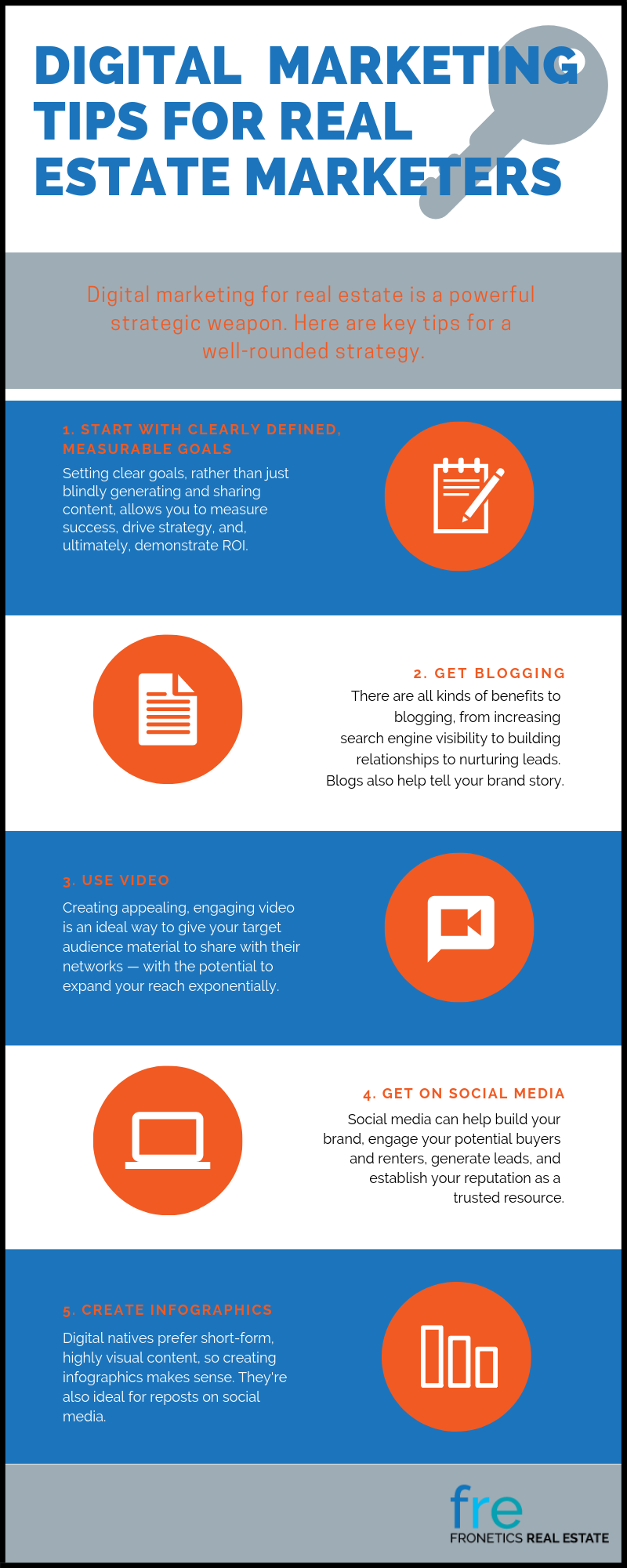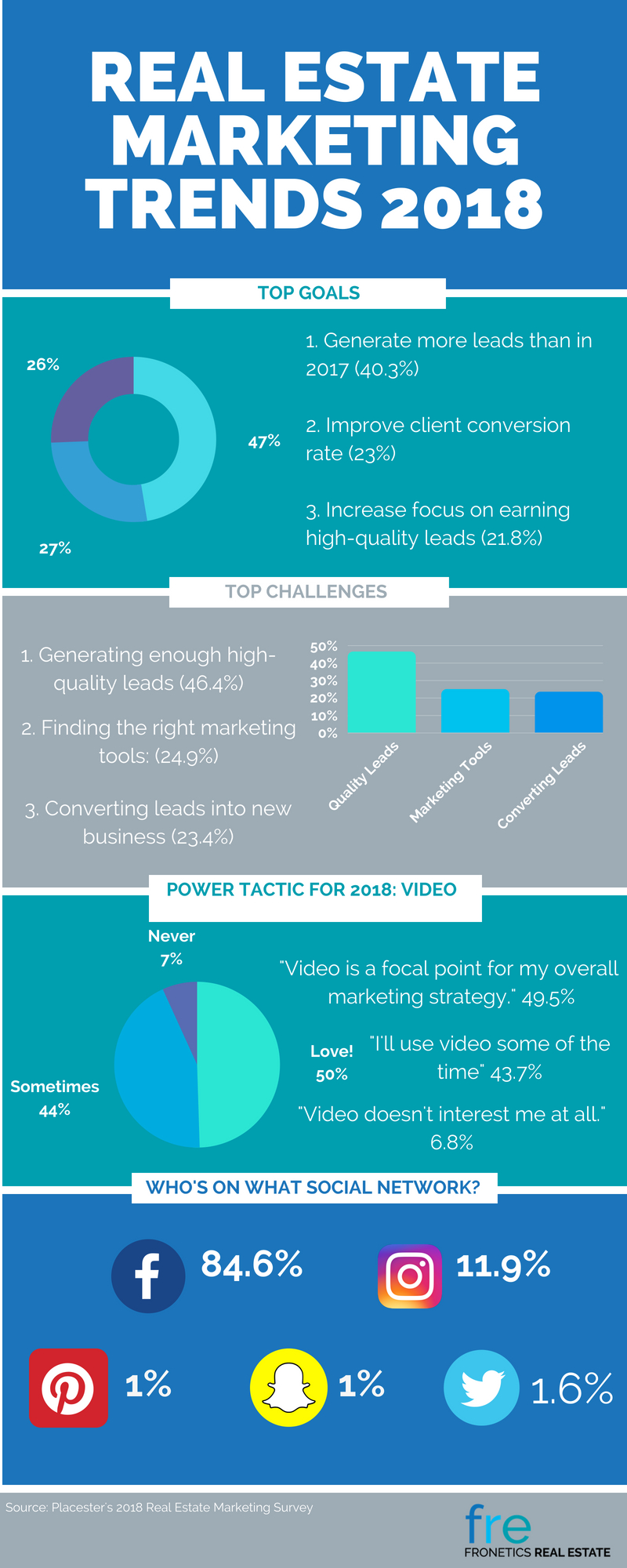Posts Tagged "video"

Twitter and Real Estate Marketing: 3 Tips to Get You Started
Thinking of using Twitter to market your real estate brand? The social media platform helps build brand awareness and boost engagement. Here are three tips to get you started with Twitter and real estate marketing.
Highlights:
- When real estate brands are looking to grow audiences, increase brand awareness, and boost engagement, social media is an ideal place to start.
- It’s key to have a strategy that outlines the methods by which you will target, reach and engage prospects. It also helps to keep tweets in line with brand messaging.
- using social media for real estate marketing is a great way to start a conversation, exchange advice, and create a lasting relationship with prospects.
When you think about social media, you think about people. Social media platforms have skyrocketed in popularity due to its ability to connect people, and this is why social media has become such a valuable asset to marketers.
When real estate brands are looking to grow audiences, increase brand awareness, and boost engagement, social media is an ideal place to start. But it’s not as easy as signing up and pushing out a few tweets. Here are three tips every real estate brand needs to know about using Twitter to market your next project.
Three tips to get real estate marketers started on Twitter
1. Start with a strategy
Marketers are often tempted to jump right in and start shooting out tweets. But as with any digital marketing effort, it’s best to start with a plan. A strategy outlines the methods by which you will target, reach and engage prospects. It also helps to keep tweets in line with brand messaging.
Make sure your Twitter and real estate marketing strategy includes a content calendar that’s full of valuable, informative content. Don’t be afraid to think outside of the box when it comes to marketing. The largest percentage of users on Twitter are millennials (not surprising), so make sure your content calendar includes topics that readers find interesting: hot spots in your property’s neighborhood, seasonal community events, and features from your property.
2. Use visuals (including video)
Twitter is all about the visual. In fact, tweets with pictures or videos receive 18% more likes and 150% more retweets. Since video is the most popular and most widely shared form of online content right now, it’s smart marketing to incorporate video into your tweets. Think about supporting your content through visually appealing videos, such as quick interviews, breaking news updates, or even how-to demonstrations, infographics and pictures. You’ll be making a lasting impression, attracting new followers and driving traffic to your website.
3. Engage
Don’t be shy! Once you’ve started tweeting and gain followers, get in there and start engaging. Ask questions, like, and re-tweet posts. Just remember to keep your engagement informative by focusing on insightful and interesting content.
We encourage our real estate clients to show what makes their brand unique when engaging with followers. This honest view into your company allows followers to feel comfortable with your brand and easier to engage with. Like I mentioned before, social media and real estate share the ability to connect people. Don’t be afraid to show the “human” side of your brand.
These three strategies will help get you started with Twitter and real estate marketing. With the right strategies, using social media for real estate marketing is a great way to start a conversation, exchange advice, and create a lasting relationship with prospects. Looking for more tips on creating or updating your social media strategy? Shoot us an email.
Related posts:
- The Top 3 Social Media Mistakes Real Estate Brands Still Make
- 5 Tips for Building a Successful Real Estate Social Media Marketing Program
- Infographic: Real Estate Social Media Marketing Strategies
Posts Tagged "video"

Infographic: 5 Tips to Make Digital Marketing for Real Estate Count
Digital marketing for real estate is a powerful strategic weapon. Our infographic gives you some key tips for a well-rounded strategy.
Highlights:
- 88% of all home buyers use the internet to collect information, and for 43%, an online search is their first step.
- When you kick off digital marketing for real estate, setting clear goals, rather than just blindly generating and sharing content, allows you to measure success, drive strategy, and ultimately, demonstrate ROI.
- Video is an ideal way to give your target audience material to share with their networks — with the potential to expand your reach exponentially.
As the realm of marketing has undergone a seismic shift in the past decade, digital marketing for real estate has taken off. According to the National Association of Realtors, 88% of all home buyers use the internet to collect information, and for 43%, an online search is their first step. Real estate marketers are increasingly targeting their efforts on digital media, and content marketing is one of the best ways to do this.
Our infographic below represents our favorite digital marketing tips for real estate marketers. Read on for ways you can use this powerhouse tool to market your brand and properties.
Digital marketing for real estate — 5 tips
1) Start with clearly defined, measurable goals
Effectively selling or leasing property requires a comprehensive, data-driven approach to marketing — which means starting with clearly defined, measurable goals. Are you looking to generate more leads? Raise brand awareness? Grow your social media presence? When you kick off digital marketing for real estate, setting clear goals, rather than just blindly generating and sharing content, allows you to measure success, drive strategy, and ultimately, demonstrate ROI.
2) Get blogging
Blogs help you sell real estate. Period. There are all kinds of benefits to blogging, from increasing search engine visibility to building relationships to nurturing leads. The more you publish, the higher you’ll rank with search engines. And every time you publish a blog post, you increase the chances that a user searching online for real estate will find your website.
Blogs also help tell your brand story. They help buyers imagine themselves in your space. They nurture leads and build trust among potential buyers. In a recent audit of a client’s website, we found that people who read the blog converted at an almost 30% higher rate than other web traffic. That’s significant.
3) Use video
If you’re a frequent reader of our blog, you’ll know that we’ve been writing about the astronomical rise of video in real estate marketing for a while now. We can’t stress it enough: video is here to stay, and it’s time your business starts embracing it as a highly effective content marketing tool.
Part of what makes video such an appealing form of content is its inherent shareability, which drives organic traffic. Getting your content and properties out to your base audience is one thing but empowering that audience to be your ambassadors is a huge next step. Creating appealing, engaging video is an ideal way to give your target audience material to share with their networks — with the potential to expand your reach exponentially.
4) Get on social media
Real estate is a people business. That’s why you should leverage a marketing tool that is also all about people: social media. If you have not begun developing social media strategies for your real estate business, now is the time to get started.
Consider for a minute that in 2017, 81% of Americans had at least one social media profile. And the numbers are projected to continue skyrocketing: by 2020, 200 million people just in the U.S. are estimated to be on social media. Used wisely, social media can help build your brand, engage your potential buyers and renters, generate leads, and establish your reputation as a trusted resource.
5) Create Infographics
Infographics can be one of the most effective mediums for digital marketing for real estate. We know that digital natives, who make up the majority of real estate buyers today, prefer short-form, highly visual content. So, infographics make a lot of sense when it comes to speaking their language. Infographics are also prime candidates for reposts on social media.
Since the text in infographics isn’t readable by search engines, you can make the most out of your content and bump up your SEO by including a transcript of your text with your graphic, ideally at least 350 words.
Final thoughts
Online searches have changed real estate marketing for good. In fact, the possibilities that digital marketing offers are varied, constantly evolving, and exciting. Savvy real estate marketers are using quality content to raise brand awareness, improve SEO, build relationships, and generate leads.
Related Posts:
- A Visual Guide to Social Media Posting Frequency for Real Estate
- 10 Social Media Statistics for Real Estate Marketers 2018
- 10 Quick Ways to Grow Brand Awareness
Posts Tagged "video"

Top Real Estate Marketing Trends 2019
It’s the start of a new year, and that means savvy marketers are looking to stay ahead of the curve. These top real estate marketing trends are what we see coming for 2019.
Real estate is a competitive and ever-changing industry. Just when your business settles into a successful routine, new marketing tactics and trends can throw you a curve ball. But being aware of the forces shaping the industry is the best way to hit your marketing efforts out of the park this new year. Here are the four top real estate marketing trends that we see coming in 2019.
1) It’s all about the video
If you’re a frequent reader of our blog, you’ll know that we’ve been writing about the astronomical rise of video in real estate marketing for a while now. We can’t stress it enough: video is here to stay, and it’s time your business starts embracing it as a highly effective content marketing tool.
Part of what makes video such an appealing form of content is its inherent shareability, which drives organic traffic. Getting your content and properties out to your base audience is one thing but empowering that audience to be your ambassadors is a huge next step. Creating appealing, engaging video is an ideal way to give your target audience material to share with their networks—with the potential to expand your reach exponentially.
2) People are craving authenticity
One of the dangers of a strong marketing presence is that it can almost become too smart and slick for its own good. It’s no surprise that, as Instagram edges us all towards posting only carefully curated, perfectly doctored reality, companies are likewise looking to share nothing but perfection.
But increasingly, social media users are craving authenticity. Of course, this doesn’t mean creating and sharing sloppy content, but it does mean allowing your followers to get a real, honest sense of your company and properties through the content you post on social media. Let your social media platforms be places where you engage your followers through compelling content that says something about the culture of your business and your passion for real estate.
3) Keep it personal
In a world of bots, robocalls, and AI, don’t underestimate the power of the personal. Much as users are seeking authenticity from marketers on social media, your potential buyers and renters will respond all the better to personalized content and relationship-building.
Whenever you can, add a personal touch to your communication with your audience. This doesn’t just mean adding their names to emails—in fact, marketing automation can (perhaps paradoxically) be your secret weapon when it comes to developing personal communication with potential buyers and renters. (Check our guide to marketing automation tools for real estate marketers here.)
4) Get creative
Writing and talking about creativity is a bit of a paradox. As soon as trends start to catch on and become, well—trends, they’re no longer shiny new innovations. One thing we can say for certain about the new year, and the future of real estate marketing going forward, is that creativity is going to be key.
While we can’t tell you exactly how to be creative, we can give you tips for developing an environment in which creativity can thrive. Being aware of trends, benchmarking your marketing efforts against those of your competitors, reading industry blogs, and listening to your client-base are just a few key ways to foster a culture of marketing creativity.
Related posts:
- 4 Real Estate Marketing Trends 2018
- Infographic: Real Estate Marketing Trends 2018
- 10 Social Media Statistics for Real Estate Marketers 2018
Posts Tagged "video"

Infographic: Real Estate Marketing Trends 2018
Placester’s 2018 Real Estate Marketing Survey reveals these real estate marketing trends: lead generation, challenges, the rise of video content, and social media.
Earlier this year, digital marketing platform Placester published the results of its 2018 Real Estate Marketing Survey. The survey collected data from hundreds of real estate professionals nationwide and contains valuable information for benchmarking your marketing efforts, in “an industry ready to invest more time, money, and energy toward online marketing and generating more leads.”
When we looked at the survey results, we found that there were four big takeaways for real estate marketing professionals: goals, challenges, the rise of video content, and social media. Our infographic below delves into each of these four key areas.
Why are these results significant for me?
First off, you can learn a lot from looking at the aggregate goals for the real estate industry. Understanding what peers are working toward can help you tailor your own efforts, prune unnecessary practices, and optimize your marketing efforts. Knowing, for example, that 40.3% of survey respondents cited lead generation as a top objective helps you get to the bottom line: Regardless of experience, skill level, or niche, real estate professionals are focused on attracting valuable clients, and you should be, too.
Likewise, having an understanding of industry-wide challenges can offer valuable insight. Placester’s survey reveals that just as lead generation is a top priority for the majority of respondents, it’s also the top concern for real estate professionals.
As far as techniques go, one of the most popular marketing tactics for greater exposure in 2018 is emerging as video. The survey reveals that the real estate industry is embracing the power of video marketing. And the good news is, you don’t need an expensive camera, lighting, or a production studio. Your smartphone can be just as effective for creating video content for your social media outlets.
Which brings us to social media. A whopping 84.6% of respondents pointed to Facebook as the social media network they will use the most in 2018. And for good reason. Facebook is ideal for real estate marketing in many ways. Its large user base makes it a go-to network, as well as its robust mobile presence, with location-specific advertising and sophisticated algorithms to help you reach your target audience.
Check out our infographic below for a summary of the rest of Placester’s data.
Real estate marketing trends 2018 infographic
Related posts:
- A Visual Guide to Social Media Posting Frequency for Real Estate
- 10 Social Media Statistics for Real Estate Marketers 2018
- 5 TED Talks for Real Estate Marketers
Posts Tagged "video"

4 Real Estate Marketing Trends 2018
These 4 takeaways from Placester’s 2018 Real Estate Marketing Survey give us an idea of real estate marketing trends to keep an eye on.
Digital marketing platform Placester recently published the results of its 2018 Real Estate Marketing Survey. The survey, which collected data from hundreds of real estate professionals nationwide, contains valuable information for benchmarking your marketing efforts in “an industry ready to invest more time, money, and energy toward online marketing and generating more leads.”
We’ve pulled out the top 4 takeaways from the survey here. Interestingly, these real estate marketing trends align with those we are seeing with our clients as well.
In general, real estate marketers are focused on leads: acquiring valid potential buyers and then turning them into sales. It makes sense, then, that many are turning to content marketing as a strategy, as it can be a highly effective lead-generation engine. Read on for more.
4 real estate marketing trends to watch
1) A focus on lead generation, nurturing, and conversion.
You can learn a lot from looking at the aggregate goals for the industry.
When asked about their top objective for 2018, 40.3% of survey respondents name generating more new leads than in 2017. Additionally, 23% look to improve on last year’s client conversion rate, 21.8% cited focus on the quality of leads earned, and 14.9% are aiming to learn how to better nurture and qualify prospects.
The bottom line: real estate professionals are focusing on generating, nurturing, and converting leads.
2) Challenges
As with looking at objectives, having an understanding of industry-wide challenges also offers valuable insight.
46.4% of survey respondents said that generating enough high-quality leads is the biggest marketing challenge they face in 2018. Rounding out the list, 24.9% are concerned about finding the right marketing tools to use; 23.4% cite converting leads into new business; and 5.3% are worried about analyzing their marketing performance.
Just as lead generation is a top priority for the majority of respondents, it’s also the top concern for real estate professionals.
3) Video
One of the most popular marketing tactics for greater exposure in 2018 is video.
When asked what part video will play in overall marketing strategy, 49.5% of respondents indicated that it would be a focal point. 43.7% said they would use it some of the time, while only 6.8% indicated that video didn’t interest them at all.
The real estate industry is embracing the power of video marketing. And the good news is, you don’t need expensive camera, lighting, or a production studio — your smartphone can be just as effective for creating video content for your social media outlets.
4) Social media
Which brings us to social media.
When asked which social media network they will use most, a whopping 84.6% of respondents pointed to Facebook, with 11.9% saying Instagram, 1.6% saying Twitter, and 1% respectively for Pinterest and Snapchat.
Facebook is ideal for real estate marketing in many ways. Its large user base makes it a go-to network, as well as its robust mobile presence, with location-specific advertising and sophisticated algorithms to help you reach your target audience.
What real estate marketing trends are you keeping an eye on this year?
Related posts:





